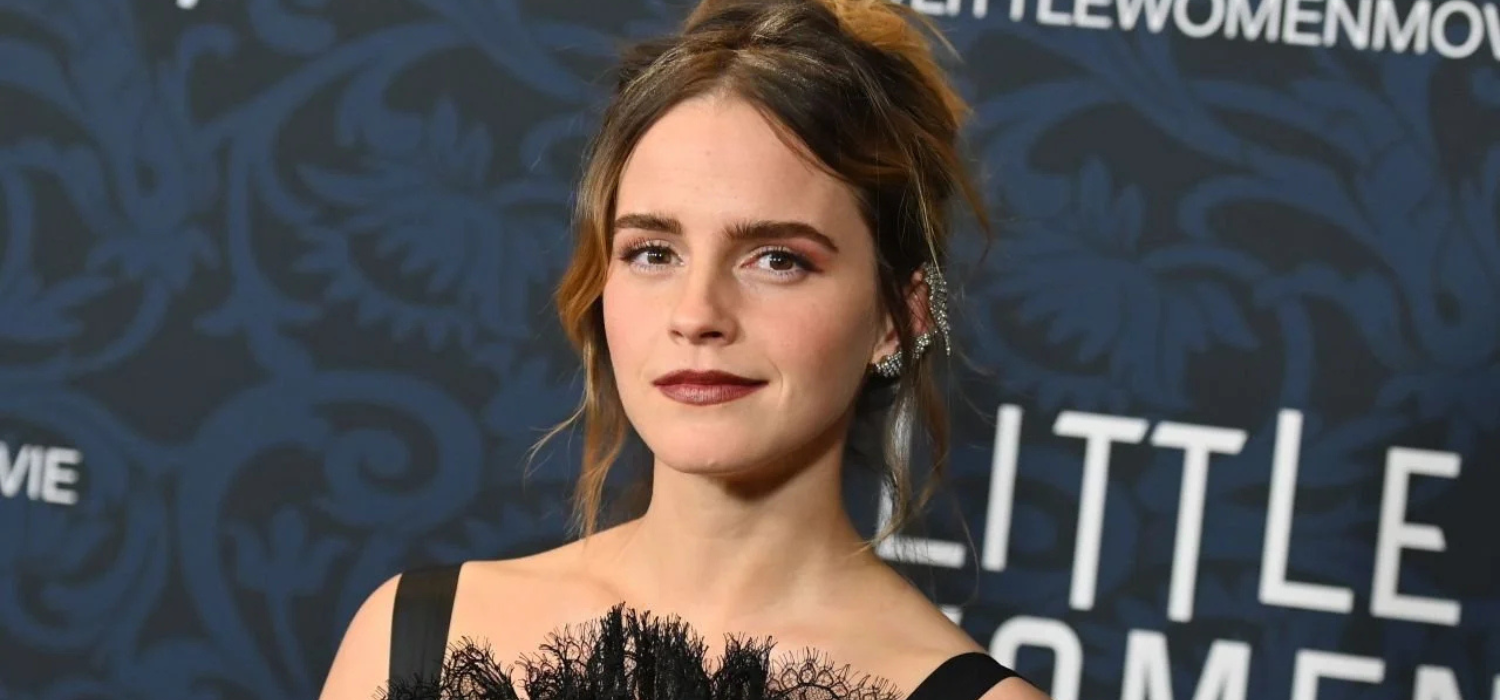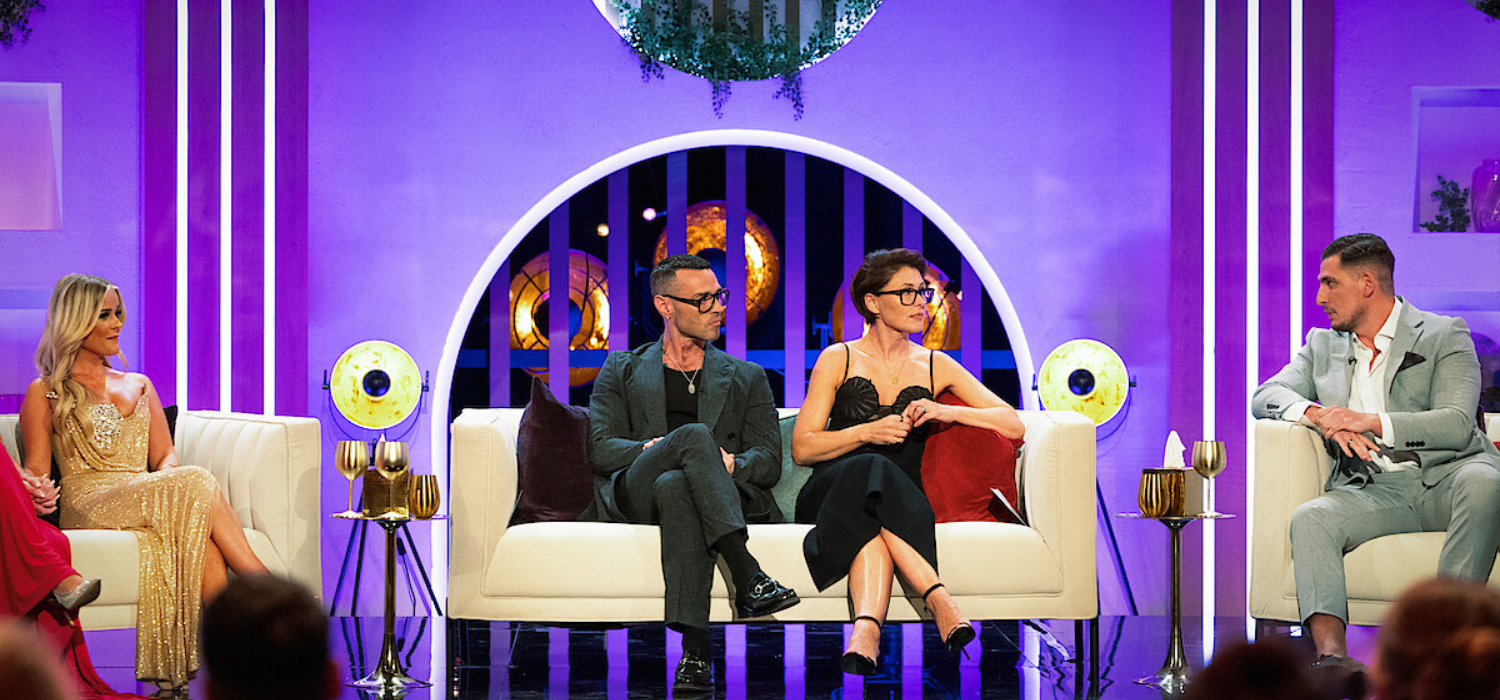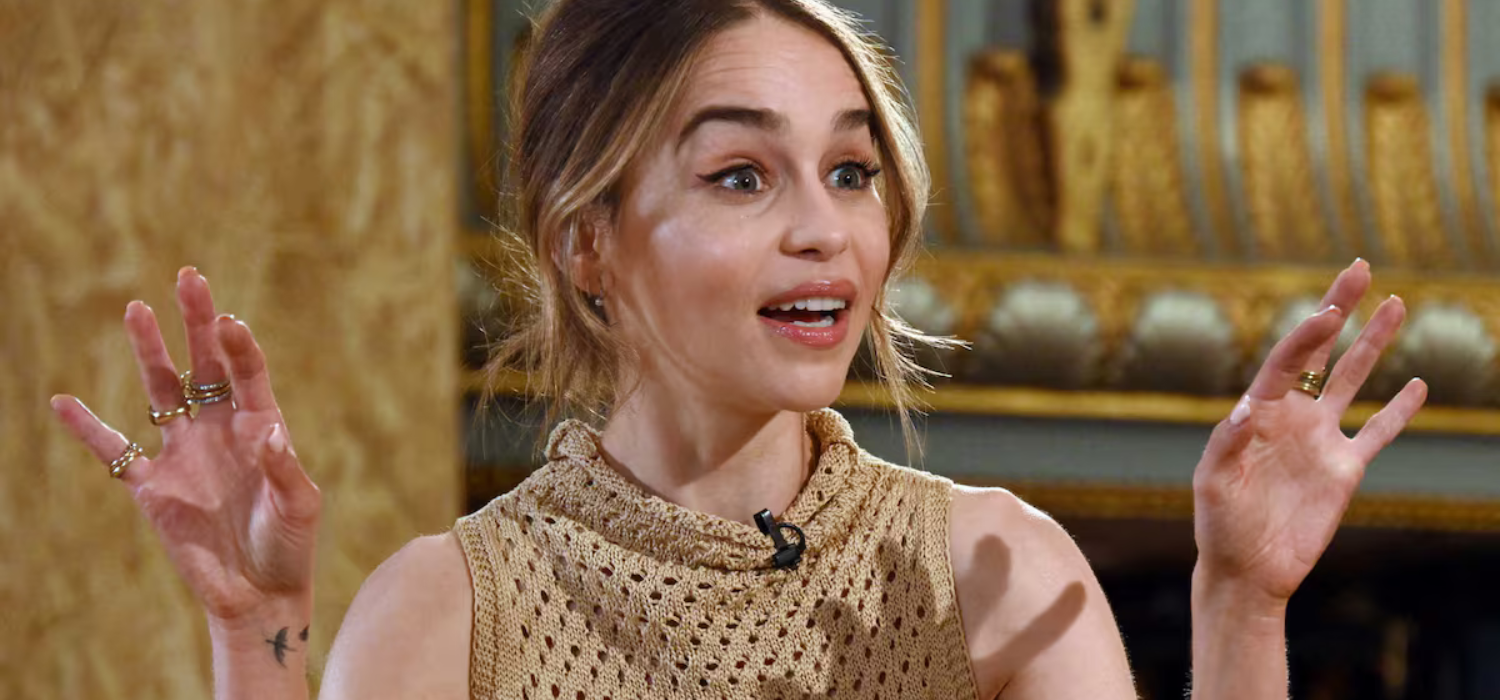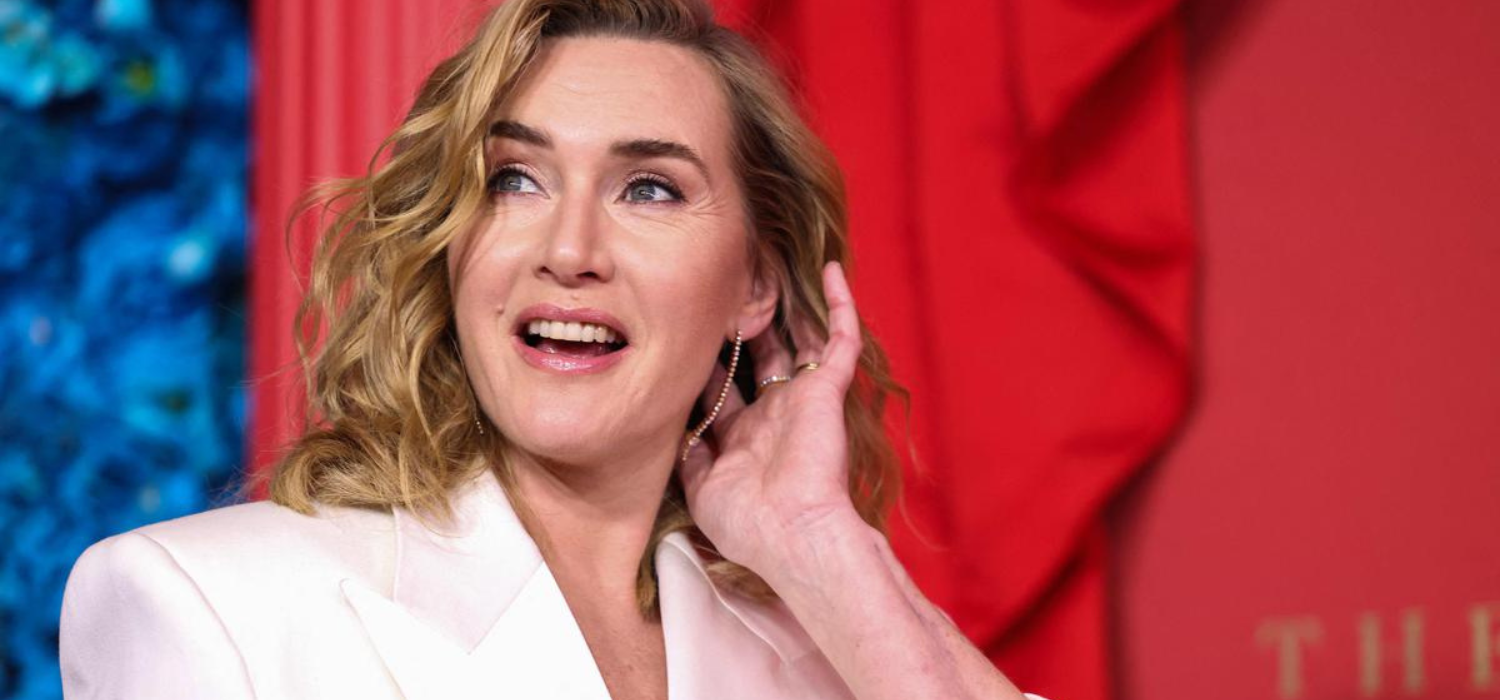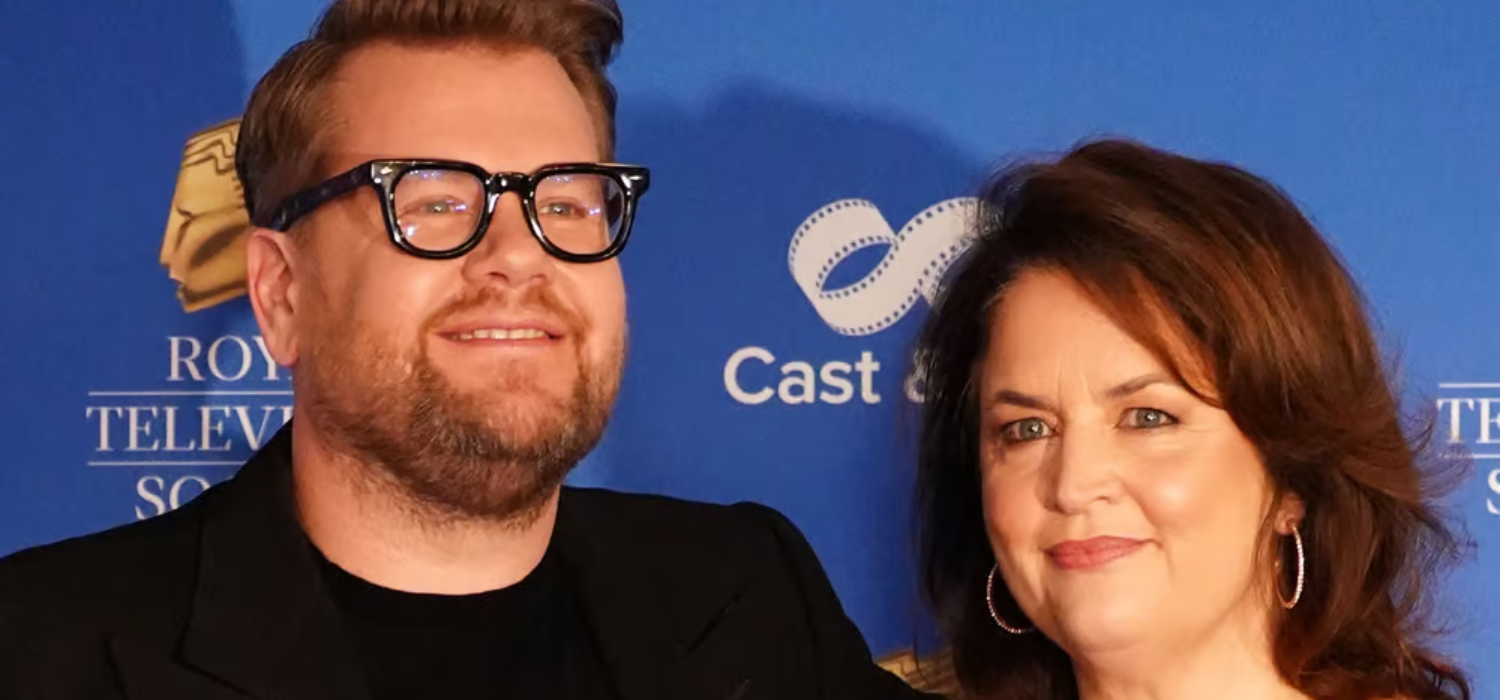Introduction: A Star with Depth Saoirse Ronan is widely recognized as one of the most talented actors of her generation. Born in New York City but raised in Ireland, she has built a career defined by versatility, intelligence, and emotional depth. From her breakout role in Atonement to critically acclaimed performances in Lady Bird, Little Women, and Brooklyn, Ronan has consistently demonstrated a remarkable ability to inhabit complex characters. This blog takes a closer look at Saoirse Ronan’s life, acting journey, personal inspirations, and the philosophy behind her craft. It explores how she approaches roles, balances her personal and professional life, and remains grounded despite international fame. Early Life and Background Saoirse Una Ronan was born on April 12, 1994, in New York City to Irish parents. Her early years were split between the United States and Ireland, giving her a unique perspective on identity and culture. This combination of family support, cultural richness, and early exposure to performance laid the foundation for her future success. Breakthrough Role: Atonement (2007) At just 13, Saoirse Ronan captured international attention with her role as Briony Tallis in Atonement. Her performance was lauded for its emotional maturity and precision. This early success established a reputation for depth and intelligence in her acting choices. Building a Diverse Portfolio Ronan avoided being pigeonholed as a child actor by choosing a variety of challenging roles: This strategic selection of roles allowed her to grow as an actor while maintaining critical credibility. Approach to Acting: Craft and Philosophy Saoirse Ronan’s performances are characterized by preparation, empathy, and focus: These methods make her performances feel both polished and deeply human. Inspirations and Role Models Saoirse Ronan often cites influences that shaped her artistic perspective: These inspirations inform not only her professional approach but also her personal ethos toward work and life. Balancing Fame and Personal Life Despite global recognition, Ronan has maintained a grounded life: This balance allows her to remain focused and prevent burnout in a demanding industry. Expanding Horizons: Major Film Roles Following her early successes, Saoirse Ronan carefully selected roles that showcased her versatility and depth. Each performance demonstrated her commitment to authentic storytelling: Through these roles, Ronan has consistently chosen characters that challenge societal norms, emotional boundaries, and cinematic expectations. Awards and Recognition Saoirse Ronan’s talent has been recognized worldwide, earning numerous accolades: These awards reflect both critical and industry acknowledgment of her exceptional skill and versatility. Collaborations with Visionary Directors Ronan has worked with renowned directors who have shaped her artistic growth: Her collaborations demonstrate her ability to adapt to different directorial styles while maintaining a strong personal voice in her performances. Stage Work and Theatre Influence Although primarily a film actor, Ronan’s stage work has informed her approach to character development and presence: This foundation in theatre has contributed to the depth and authenticity she brings to every role. Artistic Approach and Methodology Saoirse Ronan is known for her methodical yet flexible approach to acting: This approach has enabled her to handle a range of genres — from historical drama to contemporary comedy — with equal authenticity. Public Image and Influence Beyond the screen, Saoirse Ronan maintains an admired public image: Her influence extends beyond performance, inspiring discussions about artistic integrity, cultural identity, and ethical celebrity. Personal Inspirations and Life Philosophy Ronan frequently cites sources of inspiration that shape both her craft and worldview: This philosophy guides her choices, allowing her to maintain artistic integrity while exploring new dimensions of performance. Social Impact and Advocacy Ronan uses her platform to engage with broader cultural and social discussions: Through her thoughtful engagement, she exemplifies how actors can positively influence audiences and industry standards. Recent Projects and Evolving Career Saoirse Ronan continues to explore challenging roles that stretch her artistic range: These projects reflect her commitment to growth, experimentation, and meaningful storytelling. Interviews and Personal Reflections In interviews, Saoirse Ronan provides insights into her approach to life and work: Her reflective nature endears her to audiences and highlights a maturity beyond her years. Acting Style: What Sets Her Apart Saoirse Ronan’s acting is characterized by a blend of emotional precision, versatility, and presence: Her style merges instinctive reactions with careful preparation, resulting in performances that resonate emotionally. Behind-the-Scenes Insights Saoirse Ronan’s dedication to her craft extends to her interactions behind the camera: These habits underscore her professionalism and contribute to the lasting quality of her performances. Legacy and Influence Although still early in her career, Ronan has already left a significant mark: Her legacy is defined not only by awards and critical acclaim but by the standard of excellence she sets for peers and successors. Conclusion: Heart-to-Heart with Saoirse Ronan Saoirse Ronan exemplifies a rare combination of talent, humility, and dedication. From her early breakout in Atonement to her recent critically acclaimed projects, she consistently delivers performances that resonate deeply with audiences. Her ability to balance emotional authenticity with technical skill sets her apart as one of the most gifted actors of her generation. Beyond acting, Ronan’s personal philosophy — grounded in empathy, learning, and authenticity — serves as an inspiration to both her peers and fans worldwide. She has not only contributed remarkable performances to modern cinema but has also helped shape the expectations of what a young actor can achieve in today’s global film industry. By exploring her journey, craft, and personal reflections, we gain a comprehensive understanding of what makes Saoirse Ronan a truly exceptional talent. She reminds audiences that greatness in acting is not solely about fame or awards but about connection, depth, and the courage to tell stories that matter.
Emma Watson-Talent Up Close: Talk Show Moments That Shined
Introduction: The Magic of Emma Watson on the Sofa When it comes to British actors who have left a lasting mark on both cinema and culture, Emma Watson stands out as one of the brightest stars. Known globally for her role as Hermione Granger in the Harry Potter films, Watson has since carved out a career that spans acting, activism, and style. Yet, beyond the red carpets and movie sets, one of the most fascinating spaces where her personality truly shines is the talk show sofa. Whether in the UK or abroad, her interviews are a masterclass in grace, intelligence, and relatability. Talk shows give audiences a glimpse of the person behind the roles. For Watson, these appearances have allowed her to balance being a beloved celebrity with being a grounded, thoughtful individual. From witty exchanges to heartfelt reflections, her talk show moments have become essential in shaping how fans perceive her beyond the big screen. The Early Days: From Child Star to Talk Show Guest Watson’s earliest talk show appearances came during her teenage years as she promoted the Harry Potter series. These moments often highlighted the delicate balance of being a young actress navigating global fame while still focusing on school. Unlike many child stars, Watson projected maturity well beyond her years, which immediately caught the attention of both hosts and audiences. In UK-based interviews, she often discussed how she tried to maintain a “normal” school life despite the growing phenomenon of the wizarding world. This authenticity resonated deeply with fans, as it showed her not only as an actress but as someone who valued education, personal growth, and balance. The juxtaposition of Hollywood glamour with grounded humility became one of Watson’s defining traits in interviews, something that only grew stronger with time. British Wit Meets Global Stage What makes Watson’s talk show appearances truly special is her natural wit. British humor is often understated, clever, and slightly self-deprecating, and Watson embodies this style perfectly. Whether on UK talk shows like The Graham Norton Show or during international appearances on The Tonight Show Starring Jimmy Fallon, she effortlessly blends intelligence with charm. Her ability to laugh at herself — whether recounting embarrassing moments on set, or sharing stories about her university life at Brown and Oxford — has made her relatable to audiences of all ages. Instead of appearing overly polished or rehearsed, she allows moments of spontaneity to shine, creating an authenticity that few actors manage to achieve in such high-pressure settings. Emma Watson and Graham Norton: A Perfect Match One of the most iconic platforms for British actors is The Graham Norton Show, and Watson’s appearances there have given fans plenty of unforgettable moments. Norton’s sofa, known for its blend of humor and spontaneity, provides the perfect stage for Watson to showcase her playful side. In one memorable segment, Watson shared lighthearted stories about her life outside acting, drawing laughter not only from the audience but also from fellow celebrity guests. Her ability to hold her own alongside Hollywood veterans demonstrated both confidence and ease. It’s in these moments that Watson transitioned from “child star” to “respected actor and cultural figure” in the eyes of the public. A Style Icon Even in Conversation Another fascinating layer of Watson’s talk show presence is her consistent sense of style. Known for her polished yet experimental fashion choices, she often turns interviews into fashion moments. Her appearances are not only about what she says but also about how she presents herself. Outfits range from elegant gowns for late-night US shows to chic, minimalist ensembles for UK interviews, all reinforcing her image as both an actress and a style influencer. Fashion becomes part of the storytelling: her clothing choices often reflect the themes she’s promoting, whether it’s a film or her advocacy work. In this way, Watson turns the talk show sofa into both a conversational and visual stage. Authenticity in Every Word Perhaps the strongest thread that runs through all of Watson’s interviews is her authenticity. In a world where celebrities are often criticized for rehearsed answers, Watson speaks with sincerity. When discussing her experiences in Hollywood, she avoids glamourized narratives and instead emphasizes learning, growth, and balance. This level of honesty has won her admiration across generations. Fans who grew up with Harry Potter feel connected to Watson because her interviews reflect the same sincerity they saw in Hermione. For newer audiences, she serves as a refreshing voice of intelligence in an often superficial celebrity landscape. Crossing the Atlantic: Emma Watson in American Talk Shows As Watson’s career grew beyond Harry Potter, her presence on international talk shows became just as important as her UK appearances. On American late-night programs such as The Tonight Show Starring Jimmy Fallon, The Late Show with Stephen Colbert, and The Ellen DeGeneres Show, she revealed another side of her personality: playful, witty, and effortlessly charming. One striking aspect of her American appearances is how well she adapts to different hosting styles. Fallon, known for his high-energy games, often brought out Watson’s competitive yet humorous streak. On Colbert, her thoughtful responses resonated with the host’s intellectual humor. With Ellen, she showed a lighter, fun-loving personality, allowing audiences to connect with her in new and unexpected ways. The Viral Lip Sync Battle with Jimmy Fallon One of Emma Watson’s most talked-about moments came during a playful Tonight Show segment with Jimmy Fallon, where she participated in the lip sync battle. Rather than treating the segment as a simple stunt, Watson threw herself into the performance with enthusiasm, creating a viral moment that trended across social media. This instance highlights an important element of Watson’s talk show success: her willingness to fully commit. Instead of holding back or appearing self-conscious, she leans into the humor and fun of the moment, showing audiences that behind her polished image lies a young woman who enjoys laughing at herself. Balancing Entertainment with Depth Despite the lighthearted games and funny anecdotes, Watson often uses her platform on talk
Lights, Camera, Conversation: Talk Show Journeys
Introduction: The Power of Talk Shows Talk shows occupy a unique space in the entertainment world. Unlike scripted dramas or blockbuster films, they thrive on conversation, spontaneity, and personality. They act as a mirror to society, offering insight into cultural shifts, political landscapes, and celebrity personas. From lighthearted banter to thought-provoking discussions, talk shows weave together performance and authenticity. The journey of talk shows spans decades, reflecting both technological innovation and societal change. What began as intimate conversations broadcast to small audiences has grown into a global phenomenon with millions tuning in. Their power lies not in grand narratives, but in the raw, unscripted exchanges between host and guest. This blog explores that journey—how talk shows evolved, the magic of legendary hosts, the charm of unforgettable guests, and the impact these programs continue to make worldwide. The Birth of the Talk Show Format Radio Roots and Early Television The origins of the talk show can be traced back to radio. In the early 20th century, radio programs often featured hosts interviewing notable figures, blending information with entertainment. These early broadcasts established the foundation of casual, conversational engagement. With the rise of television in the mid-20th century, the format transformed. Television offered not only the intimacy of voice but also the power of visual connection. Audiences could now see expressions, gestures, and the atmosphere of the studio. The first television talk shows were modest in scale, but they revolutionized audience engagement. The First Pioneers Programs like The Tonight Show, launched in 1954, cemented the genre’s place in American entertainment. Hosted initially by Steve Allen, the show introduced a mix of interviews, comedy, and music that became the template for late-night television. Across the Atlantic, similar formats began emerging in the UK, with hosts blending wit and charm in distinctly British ways. The talk show was born as a hybrid—part theater, part journalism, part comedy. It was a stage where politicians and pop stars shared equal footing, and where audiences tuned in not just for the news, but for the personality of the host. Hosts as Cultural Icons The Importance of the Host At the heart of every successful talk show is its host. More than just an interviewer, the host serves as a guide, a comedian, and often a confidant. Their tone, humor, and empathy shape the entire viewing experience. Viewers tune in not only for the guests but also for the host’s ability to create memorable moments. American Pioneers: Carson, Letterman, and Oprah Johnny Carson, who hosted The Tonight Show for three decades, epitomized the role of the talk-show host. His wit, timing, and charisma turned his program into an American institution. Carson’s ability to balance humor with sincerity set the gold standard. David Letterman brought a more ironic, sometimes edgy style. His humor pushed boundaries, making his late-night program appeal to younger audiences. Meanwhile, Oprah Winfrey transformed the daytime talk show into a platform for empathy, self-improvement, and cultural dialogue. Her impact extended far beyond entertainment, reshaping conversations about race, gender, and personal growth. British Legends: Parky, Norton, and Ross In the UK, Michael Parkinson, known simply as Parky, became one of the most respected hosts in television history. His interviews prioritized depth and authenticity, allowing guests to reveal their humanity. Unlike some American counterparts, his focus was on conversation rather than comedy skits. Later, Graham Norton redefined the format with a playful, irreverent style. His show introduced the now-iconic “red sofa,” where multiple celebrities interacted simultaneously, sparking unscripted magic. Jonathan Ross added another layer with his energetic personality and sharp humor. These hosts each reflected the British balance between charm, wit, and candidness. The Guests: Stars in Conversation Celebrities as Storytellers Guests are the lifeblood of talk shows. Whether actors, musicians, athletes, or public figures, they bring stories that resonate with audiences. Talk shows provide a rare opportunity to see celebrities unscripted—laughing, stumbling over words, or revealing vulnerabilities. An actor promoting a film might share anecdotes from the set; a musician might perform live; a politician might defend policies in real time. These appearances humanize public figures, reminding audiences that fame does not erase personality or imperfection. Memorable Appearances Over the decades, certain appearances have become legendary. Think of Robin Williams on Letterman, unleashing a whirlwind of improvisational comedy, or Adele on The Graham Norton Show, blending self-deprecating humor with raw honesty. In daytime television, Oprah’s interview with Tom Cruise—where he infamously jumped on the couch—became cultural shorthand for celebrity eccentricity. More recently, Meghan Markle and Prince Harry’s sit-down with Oprah made headlines around the globe, blending entertainment with social commentary. Formats and Innovation in Talk Shows Late Night vs Daytime Late-night talk shows often prioritize comedy, monologues, and celebrity interviews. They provide lighthearted relief at the end of the day. Daytime talk shows, by contrast, lean toward relatability, lifestyle discussions, and emotional resonance. This divide reflects the versatility of the genre. Interactive Elements From comedy sketches to audience participation, talk shows continually innovate. Jimmy Fallon revitalized The Tonight Show with viral-friendly games and musical impressions. Ellen DeGeneres built her daytime show around dancing, pranks, and surprise giveaways. In the UK, Graham Norton’s playful audience segments—like reading aloud embarrassing stories submitted by fans—added another dimension. These innovations ensure that talk shows remain fresh and relevant. The Role of Music Live music has always been a staple of talk shows. From The Beatles performing on The Ed Sullivan Show to contemporary artists launching careers through late-night appearances, these platforms shape cultural history. For many artists, performing on a talk show signals mainstream recognition. Talk Shows as Cultural Mirrors Reflecting Society Talk shows do more than entertain; they reflect the times. In moments of crisis, they become platforms for national reflection. After the September 11 attacks, late-night hosts shifted their tone, offering comfort and solidarity. During the COVID-19 pandemic, hosts broadcast from their homes, demonstrating shared vulnerability. Shaping Public Opinion The genre has also shaped opinions. Oprah’s book club turned obscure novels into bestsellers. Stephen Colbert’s satirical commentary influenced
Revealing the Real: Talk Shows with Britain’s Finest
Introduction: When the Spotlight Turns Intimate Talk shows have always been more than just lighthearted entertainment. They serve as windows into the personal lives, vulnerabilities, and wit of actors who usually live behind carefully curated performances. For Britain’s finest actors, from legendary icons to contemporary rising stars, talk shows reveal dimensions rarely seen in films or stage productions. These conversations bring humor, honesty, and raw truth into the spotlight, creating timeless television moments that remain etched in the minds of audiences. The British Tradition of Talk Shows Unlike their American counterparts, British talk shows have carved their own identity. They thrive not only on celebrity promotion but also on banter, unpredictability, and shared laughter. From Parkinson in the 1970s to The Graham Norton Show of today, British talk shows focus on creating an atmosphere where actors drop their guard. Viewers are invited into a more casual and candid dialogue, where rehearsed lines often give way to genuine revelations. Michael Parkinson: Setting the Gold Standard Michael Parkinson pioneered the British talk-show format with a style that balanced warmth with incisive questioning. He invited legends such as Sir Laurence Olivier, Maggie Smith, and Anthony Hopkins, drawing out insights into their artistry and their humanity. Parkinson’s interviews emphasized respect for craft, offering audiences more than sound bites—they became masterclasses in performance and personality. The Graham Norton Effect Fast forward to the present, and The Graham Norton Show dominates the global stage as one of the most-watched talk shows. Norton’s format—seating multiple guests together on the famous red sofa—creates a conversational, party-like atmosphere. It often results in hilarious exchanges where actors riff off one another. For British stars like Benedict Cumberbatch, Daniel Radcliffe, and Dame Judi Dench, Norton’s show has provided opportunities for unscripted fun, transforming interviews into viral moments. Moments That Defined British Actors on Talk Shows Dame Judi Dench: Wit Beyond the Stage Dame Judi Dench has become a beloved talk-show guest, known for her razor-sharp wit and warmth. On Graham Norton’s sofa, she has shared stories about forgetting her lines, navigating Shakespearean roles, and even cheekily recounting pranks played during filming. These appearances contrast sharply with her regal on-screen characters, showcasing her as approachable, humorous, and unapologetically authentic. Sir Ian McKellen: Storytelling in Conversation Sir Ian McKellen embodies theatrical mastery, but his talk-show appearances reveal the storyteller behind the performer. He has shared anecdotes about working with Patrick Stewart, reading Shakespeare in school halls, and even hilarious tales about fans mistaking him for Dumbledore instead of Gandalf. McKellen’s charm lies in his ability to make every conversation feel like a performance—equal parts entertaining and deeply human. Helena Bonham Carter: Quirky and Unfiltered Few actors embrace their quirks as openly as Helena Bonham Carter. In interviews, she often discusses her eccentric fashion choices, her collaboration with Tim Burton, and the challenges of playing iconic roles. On talk shows, her spontaneity shines—whether it’s playfully interrupting her fellow guests or poking fun at herself. Her presence exemplifies the value of candor in these settings, where the unexpected becomes the highlight. Benedict Cumberbatch: Balancing Wit and Depth Benedict Cumberbatch has become a talk-show favorite, blending intellectual reflections with humor. Whether he’s impersonating Alan Rickman, discussing the pressures of Sherlock’s fame, or sharing stories about fan encounters, his interviews resonate across audiences. Talk shows give him space to oscillate between philosopher and prankster, revealing both the gravitas and playfulness that define his personality. The Human Side of Stardom Vulnerability in Conversation Talk shows peel back the layers of celebrity, showing that even the most accomplished stars wrestle with doubt, awkwardness, and insecurities. When Emma Thompson candidly discussed dealing with depression, or when Andrew Garfield opened up about grief, these moments transcended entertainment. They became moments of connection, reminding audiences that stardom does not erase the struggles of being human. Humor as a Universal Connector What distinguishes British talk shows is their reliance on humor as the great equalizer. Even the most serious actors often become storytellers of hilarious personal mishaps—whether it’s Hugh Grant recalling embarrassing encounters or Olivia Colman admitting she still gets nervous around fellow actors. These revelations resonate because they blend glamour with relatability. Celebrating Authenticity In an age where social media allows actors to curate their public image, talk shows stand out as spaces for authenticity. British actors often use the format to display unfiltered versions of themselves, offering audiences laughter, vulnerability, and surprise in equal measure. This authenticity has contributed to the enduring popularity of talk shows as cultural touchstones. Talk Shows as Cultural Commentary Beyond entertainment, British talk shows often reflect broader cultural conversations. From gender equality to representation in cinema, actors use these platforms to voice opinions that ripple through society. For instance, Emma Watson’s discussions on feminism, or Michaela Coel’s reflections on creative ownership, have turned talk shows into stages for advocacy. These conversations remind viewers that actors are not just entertainers but also cultural voices shaping dialogue on important issues. The Next Generation of British Talent While legendary icons paved the way for the golden age of British talk-show appearances, a new generation of actors has taken the mantle. Their blend of charisma, humor, and vulnerability makes them perfect guests for the modern talk-show format. Shows such as The Graham Norton Show, The Jonathan Ross Show, and even international platforms like The Late Late Show with James Corden have become stages for rising and established British talent to shine. Tom Holland: The Relatable Superstar Tom Holland, best known as the face of Spider-Man in the Marvel Cinematic Universe, has become a talk-show phenomenon. Despite his global fame, Holland brings an everyman quality that resonates with audiences. His stories often revolve around mishaps, whether accidentally spoiling Marvel secrets or recalling awkward encounters with co-stars. One of his most memorable appearances involved him recounting how he ruined his first meeting with Robert Downey Jr., mistaking a stand-in for the real actor. Another highlight is his dance and performance skills, showcased on talk shows with effortless charm. Holland’s presence reveals
Candid Conversations: Inside the Minds of British Actors
Introduction: The Art of the Conversation British actors have long been celebrated not just for their craft on stage and screen but also for their ability to open up in candid conversations. In interviews, talk shows, and in-depth profiles, they reveal more than rehearsed lines—they share glimpses into their personalities, struggles, inspirations, and philosophies of life. These unscripted moments offer fans and critics alike a deeper understanding of the performers behind the roles. This blog explores the world of candid conversations with British actors. From legendary performers to modern-day stars, the sofa chats and interview rooms have become a stage of their own—one where truth, humor, vulnerability, and insight come alive. The Early Tradition: Laurence Olivier and Beyond Long before late-night talk shows became cultural staples, interviews with British actors were already shaping public discourse. Sir Laurence Olivier, one of the most celebrated actors of the 20th century, was known for his reflective and often philosophical interviews. He spoke about the burden of carrying Shakespearean roles and the pressures of theatrical perfection. Olivier’s candor set a precedent. His willingness to discuss vulnerability—such as stage fright or insecurities about aging—contrasted with the myth of the untouchable actor. These early conversations gave fans a glimpse into the inner world of a performer whose presence was otherwise commanding and intimidating. Similarly, actors like Sir John Gielgud and Dame Peggy Ashcroft shared their thoughts on the evolution of theatre, discipline, and artistry in interviews that blended intellect with sincerity. Kate Winslet: Balancing Honesty and Grace Few actors embody candid grace as well as Kate Winslet. From her breakout in Titanic to her critically acclaimed roles, Winslet has consistently shared her vulnerabilities in interviews. On The Graham Norton Show, she often shares hilarious behind-the-scenes anecdotes—such as struggling with corsets or battling freezing waters. In print interviews, she has spoken openly about body image struggles and the pressures placed on women in Hollywood. Winslet’s candidness is never reckless—it’s thoughtful, balanced, and filled with empathy. She manages to make her vulnerability a source of strength, showing audiences that openness can be empowering rather than diminishing. Daniel Radcliffe: Growing Up in the Spotlight Daniel Radcliffe’s interviews reflect the journey of a child star who transitioned into a respected actor. His candid conversations often revolve around navigating fame, dealing with insecurities, and finding his identity beyond Harry Potter. Radcliffe is refreshingly honest about the challenges of growing up in front of the world. He has discussed the pressures of constant attention, his struggles with alcohol in his early 20s, and his determination to carve a career based on diverse roles rather than typecasting. On talk shows, Radcliffe embraces his quirky sense of humor. From rapping the Alphabet Aerobics on The Tonight Show to laughing about fan encounters, he balances vulnerability with playfulness. His candidness has made him one of the most beloved British actors of his generation. Olivia Colman: Laughter as Honesty Olivia Colman has become famous for her candid interviews that are often interrupted by her own uncontrollable laughter. Whether on Graham Norton or at award ceremonies, Colman embodies authenticity. Her giggling fits have gone viral, but beneath the humor lies an actor deeply connected to her craft. She has spoken openly about imposter syndrome, mental health, and the difficulty of juggling fame with family life. Colman’s candid conversations feel like chats with a close friend. They remind audiences that even Oscar winners can be self-doubting, silly, and gloriously human. Benedict Cumberbatch: Intellectual Candor Benedict Cumberbatch’s interviews reveal the intellectual curiosity of a performer who thrives on complexity. From discussing the nuances of Sherlock to reflecting on the social responsibilities of actors, Cumberbatch often dives deep into topics beyond his filmography. Yet he balances seriousness with humor. On The Graham Norton Show, he has embraced the playful side of fame, laughing at internet memes about himself and performing dramatic readings of fan fiction. Cumberbatch’s candid conversations reflect a balance between intellect and play, offering audiences a multifaceted view of the actor. The Rise of Intimate Actor Interviews in the UK In the golden age of television, interviews with actors often stuck to rigid formats. A presenter asked polite questions, and actors replied with rehearsed answers about their latest projects. Today, the tone has changed. UK actors are increasingly stepping into spaces where the conversation feels personal, authentic, and even vulnerable. This evolution reflects a global appetite for authenticity. Viewers want to see actors not just as performers but as people with emotions, quirks, and stories. British talk shows like The Graham Norton Show or podcasts like Table Manners have built reputations for creating relaxed environments that peel back the layers of celebrity life. Honesty as a Powerful Connector What sets candid conversations apart is the honesty on display. When Olivia Colman breaks into laughter mid-interview, or when Benedict Cumberbatch discusses the pressures of fame, the audience feels an immediate connection. These actors are no longer distant figures on a pedestal—they become relatable humans. This honesty has helped shift the perception of actors from being untouchable stars to being cultural storytellers who mirror the experiences of ordinary people. Emotions That Linger Beyond the Screen One of the most striking features of these interviews is the range of emotions actors share. A sit-down with Idris Elba might move from his struggles as a young actor in East London to his pride in breaking into Hollywood. Similarly, Emma Thompson has never shied away from discussing topics like gender equality, ageism, or her personal journey in balancing career and life. These moments resonate because they linger with viewers, reminding them that acting careers are built on both triumphs and struggles. Beyond Promotional Campaigns Traditionally, interviews were tied to promotional tours. An actor appeared on a talk show to plug a film or a play, smiled for a few questions, and moved on. Now, UK actors are more often seen using interviews as platforms for meaningful discussions. They may still promote a project, but the tone is broader. For instance, Daniel Radcliffe
Unscripted Moments: UK Stars on the Sofa
Introduction: The Magic of Unscripted Moments When UK stars take the sofa on late-night talk shows, morning interviews, or relaxed chat series, audiences often discover a side of them rarely seen on stage or screen. These moments can be hilarious, heartfelt, or even awkward—but that’s what makes them so memorable. Unlike scripted films or rehearsed performances, talk shows and interviews bring raw authenticity. Whether it’s Benedict Cumberbatch cracking jokes, Emma Thompson telling heartfelt stories, or Idris Elba surprising audiences with dance moves, unscripted moments capture the charm of British talent in its purest form. Why Talk Shows Matter for UK Stars Talk shows are more than just promotional platforms for upcoming films or theatre productions. They’re where personalities shine. UK actors and actresses often use these spaces to showcase wit, humility, and charisma, and sometimes even to reveal deeply personal sides of themselves. It’s not uncommon for an actor to become even more loved after a single memorable sofa moment. The humor, charm, and relatability often strengthen the bond between stars and fans. The UK vs. US Talk Show Style UK stars frequently appear on both UK-based shows like The Graham Norton Show and US platforms like The Tonight Show with Jimmy Fallon or The Late Late Show with James Corden. Each setting brings out something different. UK talk shows tend to emphasize group dynamics—actors sitting together, bouncing off each other’s humor—while US shows lean heavily on structured interviews and games. When UK actors land on these sofas, the cultural blend often creates iconic unscripted highlights. Benedict Cumberbatch: A Master of Witty Banter Benedict Cumberbatch has earned a reputation for his sharp wit during interviews. On multiple occasions, his appearances on The Graham Norton Show have gone viral. From playful impressions of Alan Rickman to laughing at internet memes about himself, he has shown an ability to turn even awkward questions into hilarious moments. One particularly memorable unscripted highlight came when he was asked about mispronunciations of “penguin.” His embarrassed but humorous explanation instantly became a global meme, showcasing how vulnerability paired with humor creates golden interview moments. Emma Thompson: Storytelling Extraordinaire Few British stars dominate a sofa quite like Emma Thompson. Known for her vibrant personality, she often transforms interviews into storytelling sessions. Thompson’s unscripted moments are filled with honesty and humor. Whether it’s sharing anecdotes about working with fellow stars, her quirky adventures in Hollywood, or personal family stories, she manages to captivate audiences effortlessly. One standout appearance was on The Graham Norton Show, where she described a hilarious misunderstanding during an award ceremony, leaving both the host and other guests in fits of laughter. Idris Elba: Cool, Charismatic, and Unfiltered Idris Elba’s unscripted moments often reflect his effortlessly cool persona. Fans love how natural he is on talk shows—never too polished, always authentic. In one famous interview, Elba was asked about being named one of the sexiest men alive. His reaction? A mix of bashful laughter and playful comments that showcased both humility and charm. Another standout moment was when he showcased unexpected dance moves on a late-night show, surprising fans who usually associate him with serious, dramatic roles. These moments highlight why he remains one of the UK’s most beloved global stars. Olivia Colman: The Queen of Awkward Humor Olivia Colman’s talk show moments are legendary for their unfiltered authenticity. She has an endearing awkwardness that feels incredibly relatable. Known for breaking into laughter mid-sentence or revealing funny behind-the-scenes stories, Colman brings a refreshing honesty to interviews. A particularly memorable sofa moment was when she forgot she was live on air and blurted out a cheeky comment, sending the audience and other guests into hysterics. Colman’s unpolished, candid approach makes her one of the most charming personalities in UK cinema. James Corden: The Sofa Host Turned Global Star While James Corden is more often the host than the guest, his journey from UK comedy to international talk show host deserves mention. His own unscripted moments—such as singing with celebrities in his viral Carpool Karaoke series—have become iconic cultural phenomena. For UK stars who appear on his show, the chemistry often feels more natural, thanks to shared roots and humor. His sofa setups allow British actors to feel at home while still appealing to international audiences. Why These Moments Stick With Us What makes these sofa stories iconic isn’t just the star power but the relatability. Watching A-list actors stumble over a word, crack a joke that wasn’t planned, or share an emotional personal story bridges the gap between celebrity and audience. The polished veneer of Hollywood fades away, replaced by genuine laughter, awkward pauses, or spontaneous reactions. It’s in those unscripted seconds that true personality shines—and fans feel like they’re sitting on the sofa right alongside their favorite stars. Daniel Radcliffe: From Wizard to Talk Show Wonder Daniel Radcliffe, forever remembered as Harry Potter, has built a second reputation as one of the most engaging interviewees. His unscripted moments are filled with awkward charm, self-deprecating humor, and surprising talents. One of the most famous sofa appearances came when Radcliffe performed the “Alphabet Rap” flawlessly on The Tonight Show with Jimmy Fallon. The audience erupted in applause as he nailed every word, proving he wasn’t just a wizard on screen but also a master of unexpected stage skills. His willingness to lean into jokes about his Harry Potter past—whether it’s about wands, owls, or awkward teenage years—has made him a talk show favorite. On The Graham Norton Show, Radcliffe once admitted he gets mistaken for Elijah Wood all the time, and instead of being annoyed, he laughed at the mix-ups. This playful self-awareness makes his interviews feel genuine, reminding fans that even global icons have awkward, relatable moments. Hugh Grant: The King of Witty Comebacks If there’s one British actor who has mastered the art of unscripted humor, it’s Hugh Grant. Known for his romantic comedies, Grant brings the same quick wit to talk shows that he does to films. One of his most talked-about appearances


